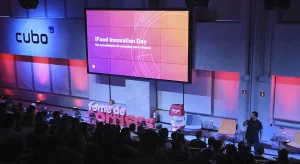In a country with continental dimensions, such as Brazil, the logistics sector has great challenges regarding time, modes of transport and infrastructure, especially in places far from urban centers.
Technology is a great ally in trying to overcome these and other obstacles in the sector. And this is how the opportunity arises for startups specializing in logistics solutions, called logtechs.
What do logtechs do?
Create solutions for high logistics costs, optimize processes and improve efficiency through technology is at the heart of the logtech business. In this context, the main categories of activity of these startups are:
- Cargo, fleet and delivery management;
- Reverse logistic;
- Delivery;
- Stock;
- Shipping marketplace.
Logtechs are betting on innovations to impact a traditional sector, which spends R$ 750 billion annually, according to a survey by ABOL (Brazilian Association of Logistics Operators). This expense represents 12% of companies' revenue and places Brazil in 61st place in the global ranking of logistics performance, according to the World Bank.
The big turning point for the growth of logtechs, as you can imagine, happened at the height of the pandemic. The innovations came to especially help Brazilian retailers to go further and boost sales even in a period of uncertainty and difficulties.
Logtech scenario in Brazil
The consolidation of logtechs in the Brazilian market came in 2021, with contracts for open innovation between startups and large companies. The 100 Open Startups platform estimates that transactions totaled R$ 135.5 million in 2021, corresponding to an increase of 24.5% compared to 2020.
The platform has 512 registered logtechs, 70% of which are concentrated between São Paulo, Minas Gerais and Santa Catarina. The consultancy Distrito points out the existence of 283 startups mapped —the number may vary depending on the criteria adopted to define them.
The fact is that at least half of them emerged between 2015 and 2020, while in the rest of the decade only 12.4% of innovations had been created.
Some of the factors that have boosted the sector are the e-commerce growth, the pressure to reduce costs and the need to focus on customer experience. Since 2011, investments in logistics companies amounted to US$1.3 billion; In 2020 alone, the segment received US$187.6 million.
Technologies in the Delivery category alone received US$ 911.1 million in resources in the period. Some of the solutions may be related to last mile delivery (or last mile), door to door (door to door), transportation planning, monitoring and tracking.
In addition, the innovations developed by logtechs can include:
- Supply chain management;
- Fleet modernization and management;
- Transport planning;
- Process improvements;
- Logistics security;
- Intermediation between suppliers and transporters.
In comparison, investment in logtechs worldwide was US$ 57 billion between 2015 and 2020. This shows that Brazil still has a lot of potential to invest in the sector.
Nationally, contributions were records in 2018, totaling US$ 683.1 million, of which iFood raised US$ 500 Million in a Series G round.
Logtech management challenges
The maturity of logtechs to deal with Brazilian logistics problems is being called into question after this boom. It has already been proven that deliveries are agile, but now it needs to be a strategic tool in the business model of companies in the sector.
The expectation is that logtechs can develop intelligent solutions that contribute to better decision making and help reduce bureaucracy in the logistics process. This permeates the customer experience, from the shipping calculation stage to monitoring deliveries.
Cost reduction is also essential for the sector's growth and can be achieved through digitalization and process automation. A report from consultancy PwC estimates that the technology could reduce logistics and transport costs by 47% by 2030.
Bringing startups and giants together
Conventional logistics can be an obstacle to development as long as there is no awareness that innovation management can boost the sector.
Open innovation initiatives, for example, can contribute to sustainable development through fleet renewal and implementation of technologies to improve traffic safety.
The lack of knowledge about technologies in a traditional sector or the fear of large companies in teaming up with startups are generally the factors that prevent this approach.
However, for innovation to happen and give rise to change, it is necessary to create partnerships to promote solutions to common problems.
A creation of iFood Labs, in 2021, is linked to this demand and the resolution of challenges in the logistics, food, retail and martech chains. Because of this initiative, iFood is among the three Brazilian companies that developed and maintain a good relationship with startups.
iFood believes that bringing startups into its ecosystem allows gains for both companies and society, as they expand their operations and their market. If you want to develop innovative solutions in partnership with iFood to contribute to the development of the logistics chain, participate in the open call until February 28th or send your pitch to iFood Labs.


